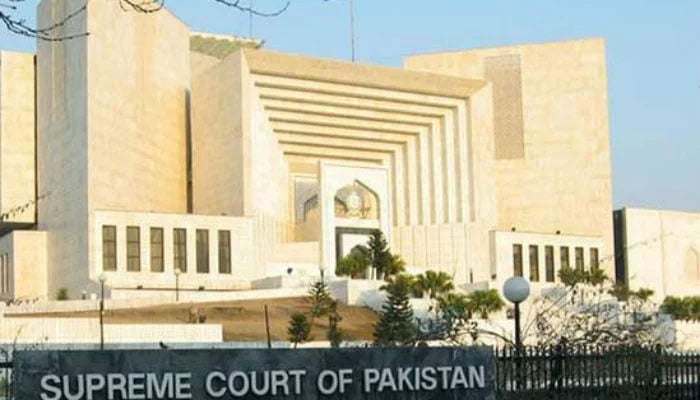Govt seeks review of SC verdict against NA deputy speaker's ruling
PTI's Asad Umar, Babar Awan, and advocate Muhammad Azhar Siddique have filed a petition urging the top court to revoke its April 7 decision
ISLAMABAD: The PTI-led government on Saturday moved the Supreme Court seeking the review of its April 7 judgment that restored the National Assembly and declared the NA Deputy Speaker Qasim Suri's ruling against the Constitution.
The apex court's five-member larger bench — headed by Justice Bandial and comprising Justice Muneeb Akhtar, Justice Aijazul Ahsan, Justice Mazhar Alam, and Justice Jamal Khan Mandokhel — had issued the ruling.
The top court had ordered National Assembly Speaker Asad Qasier to summon the session on Saturday (April 9) no later than 10:30am to allow the vote on the no-confidence motion against the premier.
PTI Secretary-General Asad Umar, Adviser to Prime Minister for Parliamentary Affairs Babar Awan, and advocate Muhammad Azhar Siddique have filed the petition urging the top court to revoke its April 7 decision.
"The Supreme Court cannot dictate the timetable to the National Assembly under Article 69," the petition stated, as the government tries to avoid being ousted.
In line with the top court's decision, the National Assembly session to vote on the no-confidence motion had been called today at 10:30am.
The order
The court's historic order read: "In consequence of the foregoing, it is declared that at all material times the Prime Minister was under the bar imposed by the Explanation to clause (1) of Article 58 of the Constitution and continues to remain so restricted. He could not, therefore, have at any time advised the President to dissolve the Assembly as contemplated by clause (1) of Article 58."
"In consequence of the foregoing, it is declared that the advice tendered by the Prime Minister on or about 03.04.2022 to the President to dissolve the Assembly was contrary to the Constitution and of no legal effect," said the order.
The Supreme Court also "declared that the assembly was in existence at all times, and continues to remain and be so".
The apex court also stated that the speaker cannot prorogue the assembly and bring the session to an end if the no-trust motion fails or after a new prime minister is elected if a no-confidence motion is passed.
The court ruled that no member will be barred from casting their vote. It also stated that if the no-trust motion fails then the government will continue to carry out its affairs.
"...if the no-confidence motion against the prime minister succeeds, then the assembly will appoint the new prime minister," the top court's order said.
-
Security forces gun down 30 terrorists in multiple IBOs in KP: ISPR
-
MQM-P calls for new province in Sindh
-
US report validates Pakistan military edge over India: PM
-
Banned TTP poses serious threat to Pakistan security: UNSC panel
-
CM Afridi clarifies remarks on by-poll after ECP requests army deployment
-
Dubai sees 3.2m Pakistani passengers in 2025 as airport sets new milestone
-
Security forces kill 23 Indian proxy terrorists in KP's Kurram
-
Pakistan to construct island to boost oil exploration: report












